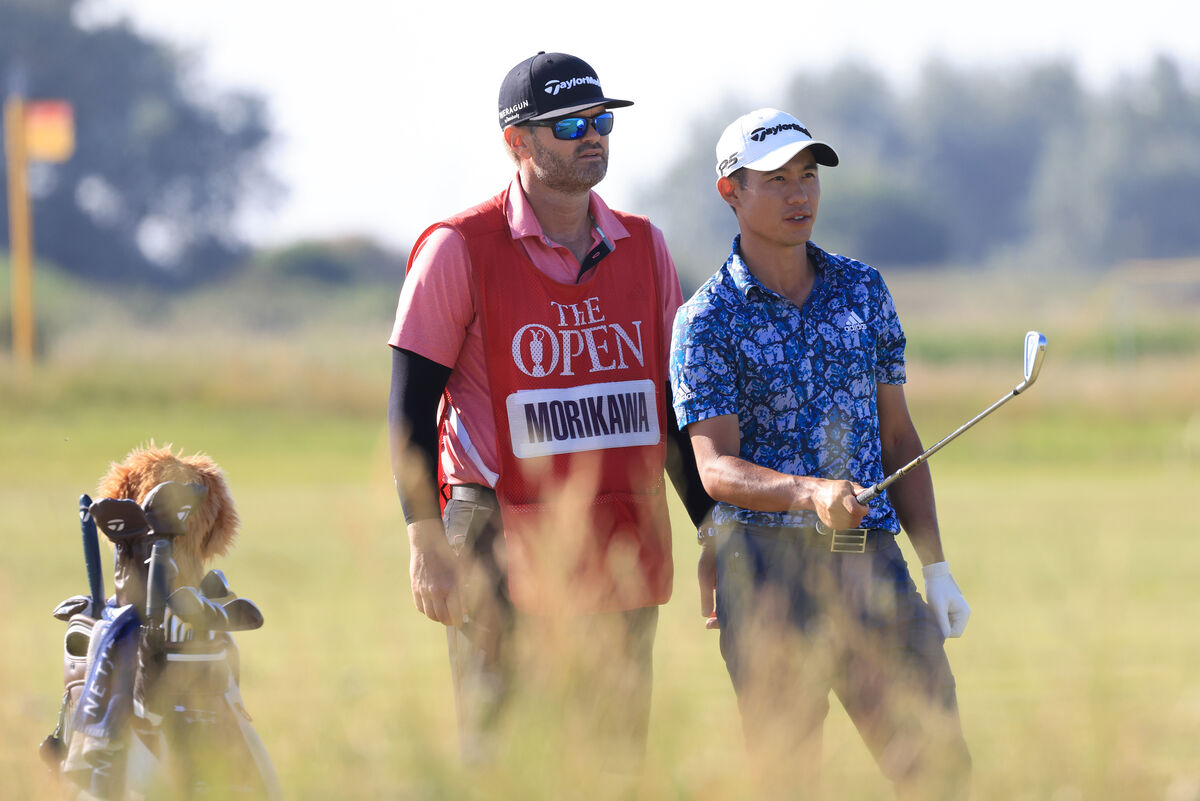What Do Caddies Get Paid
Ever wondered about the unsung heroes of the PGA Tour, the individuals who walk the fairways alongside the world's best golfers, offering support, advice, and a steady hand? The financial rewards for these caddies can be surprisingly lucrative, often reaching into the millions, yet remain a subject of mystery and speculation.
Mike "Fluff" Cowan, a name synonymous with caddying excellence, began his journey with a humble start. He recounted his first paid gig, earning a mere $20 a day and a modest 3 percent of his player's earnings. Today, the landscape is vastly different. Cowan currently carries the bag for Jim Furyk, and his estimated net worth is a staggering $1.5 million. This transformation highlights the evolution of the caddie profession and the potential for substantial financial success.
Bryan Kopsick, who works with Ben Silverman, provides another data point. He reportedly earned approximately $150,000 last year. His agreement included a $2,000 per week base salary along with 8% of Silverman's winnings. It's a testament to the earning potential, even for caddies whose players may not consistently finish at the top of the leaderboard, considering Silverman's 110th-place finish on the money list.
The professional caddie's role extends far beyond simply carrying a bag. They are integral parts of a golfer's team, offering strategic insights, course management expertise, and invaluable psychological support. This crucial role translates into a diverse range of responsibilities, impacting a golfer's performance.
Here's a table providing a clearer understanding of what a caddie does:
| Task | Description |
|---|---|
| Course Management | Advising on club selection, reading greens, and strategizing on each hole. |
| Yardage and Data Collection | Measuring distances, maintaining yardage books, and collecting data on course conditions. |
| Equipment Maintenance | Cleaning clubs, providing water and towels, and ensuring the player's equipment is in optimal condition. |
| Mental Support | Offering encouragement, keeping the player focused, and managing stress during the round. |
| Logistics and Planning | Assisting with travel arrangements, accommodations, and other logistical details. |
The financial aspect of caddying is multi-faceted. The standard compensation model involves a base weekly salary and a percentage of the player's winnings. This base pay can vary significantly, typically ranging from $1,500 to $3,000 per week for regular PGA Tour caddies, as reported by sources like Golflink. Experienced caddies or those working with top-tier players often command $3,000 or more per week.
On top of the weekly base pay, caddies also receive a percentage of their player's earnings. The common arrangement is around 5% of the winnings for finishes outside the top 10. This percentage can increase to 10% or even more for a victory in a major tournament. This structure creates a strong incentive for the caddie to contribute to the player's success, as their income is directly tied to the golfer's performance.
Beyond the standard pay, caddies can also benefit from additional sources of income. Travel and hotel costs are often negotiated into the agreements, and some players cover these expenses for their caddies. Sponsorship deals are becoming increasingly common, allowing caddies to earn additional revenue by representing brands and products. This diverse income stream showcases the professionalization of the caddie role and its potential for significant financial rewards.
The impact of a caddie on a golfer's performance is often subtle but can be profound. They provide essential support and guidance on the course. They contribute significantly to the success of professional golfers, managing everything from club selection to reading greens, assisting the player to make informed decisions and keep focused.
In 2024, the Northern Irish golfer, who has been enjoying a successful year, has already amassed over $10 million in prize money, primarily due to victories in the Wells Fargo Championship and the Zurich Classic of New Orleans. This underscores the financial potential available to both players and their caddies when they are successful.
The question of whether caddies get paid if their player misses the cut is one often raised. The answer is a resounding yes. Caddies typically receive their agreed-upon base pay for the week, regardless of the player's performance. This provides a degree of financial security, ensuring they are compensated for their time and effort even if their player doesn't make it to the weekend rounds.
Estimates for how much caddies earn at the Masters tournament place base pay in the $1,500 to $3,000 range per tournament. The negotiated percentage of the golfer's winnings, which can vary between 5% and 10%, represents the real potential for financial gain.
Consider the case of Scottie Scheffler, currently one of the world's top golfers. In a record-breaking year, Scheffler earned over $21 million. This suggests his caddie took home a minimum of $1.8 million, and potentially even more, demonstrating how lucrative this career can be when paired with a top-performing golfer.
The best PGA caddies guide their players to major championship wins, and the rewards are significant. For instance, the caddie for Xander Schauffele received a gold ring from the Tokyo games, a token of appreciation from Schauffele and his family that illustrates the value of the relationship. The caddie's contributions are not always monetary; the emotional and team support is just as important.
The dynamics of caddie pay, as discussed, highlight how they are compensated on a pay scale. The general rule is the base pay is a fixed amount plus a percentage of the player's earnings in each tournament. The more exclusive and expensive the golf club, the more the caddies will make.
The caddie's role also includes providing support on and off the course, handling logistics, and ensuring the player's equipment is in good condition. This multifaceted role is vital to the golfer's success.
Caddies have to manage their own expenses, including travel, lodging, and other necessities. This contrasts with the benefits that come with those with top players, where the caddies can make $3,000 or more per week plus a percentage of winnings.
Many young people, those still in high school or college, or in their early twenties can do this job, since it requires a range of different tasks and responsibilities.
It is important to recognize that payouts depend on one factor. Even Olympic golfers will earn a different amount of money depending on how well they play.
As previously stated, a pga tour pro typically pays their caddie on what's become a standard pay scale. The caddie meets the golfer before the match. Nine times out of ten these guys are wanting the yardage books and they're not free. Some caddies make about $1,500 a week, but this can quickly dwindle with the expenses. If a caddie gets paid $1,500 then the yardage books cost about $300 and they are down to about $1,200.
While caddies are critical to a golfer's success, they do not receive medals, even if the golfer wins. Players do receive an order of ikkos medallion, which the u.s. Olympic and paralympic committee created in 2008, to award a coach, mentor or other person instrumental to the athlete's success. The caddie does get this token of recognition if the player wins.
The often asked question is how much do caddies make at the Masters? As mentioned earlier, base pay can be anywhere between $1,500 to $3,000 per tournament. However, their earnings depend greatly on how well the player does, the percentage of the golfers winnings is between 5% to 10%.
The work is hard and the hours long, and the financial rewards can be inconsistent.
Here's a table with information on a notable PGA Tour Caddie:
| Category | Details |
|---|---|
| Caddie Name | Mike "Fluff" Cowan |
| Current Golfer | Jim Furyk |
| Estimated Net Worth | $1.5 Million |
| First Paid Gig | $20 per day + 3% of earnings |
| Additional Income | Sponsorships, Travel, and Hotel Costs |
| Key Skill | Experienced and knows the job well. |
| Reference | PGA Tour Official Player Profile |
Caddying is not just about financial gain; it is a profession that requires expertise, dedication, and a genuine love for the game. These sidekicks provide insight, guidance, and crucial support, helping golfers navigate the challenges of the course and achieve their full potential.


